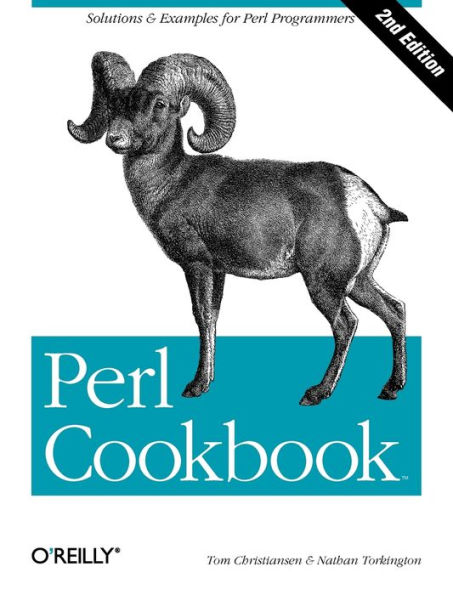Perl Cookbook
Find a Perl programmer, and you'll find a copy of Perl Cookbook nearby. Perl Cookbook is a comprehensive collection of problems, solutions, and practical examples for anyone programming in Perl. The book contains hundreds of rigorously reviewed Perl "recipes" and thousands of examples ranging from brief one-liners to complete applications. The second edition of Perl Cookbook has been fully updated for Perl 5.8, with extensive changes for Unicode support, I/O layers, mod_perl, and new technologies that have emerged since the previous edition of the book. Recipes have been updated to include the latest modules. New recipes have been added to every chapter of the book, and some chapters have almost doubled in size. Covered topic areas include:
1100354174
- Manipulating strings, numbers, dates, arrays, and hashes
- Pattern matching and text substitutions
- References, data structures, objects, and classes
- Signals and exceptions
- Screen addressing, menus, and graphical applications
- Managing other processes
- Writing secure scripts
- Client-server programming
- Internet applications programming with mail, news, ftp, and telnet
- CGI and mod_perl programming
- Web programming
Perl Cookbook
Find a Perl programmer, and you'll find a copy of Perl Cookbook nearby. Perl Cookbook is a comprehensive collection of problems, solutions, and practical examples for anyone programming in Perl. The book contains hundreds of rigorously reviewed Perl "recipes" and thousands of examples ranging from brief one-liners to complete applications. The second edition of Perl Cookbook has been fully updated for Perl 5.8, with extensive changes for Unicode support, I/O layers, mod_perl, and new technologies that have emerged since the previous edition of the book. Recipes have been updated to include the latest modules. New recipes have been added to every chapter of the book, and some chapters have almost doubled in size. Covered topic areas include:
- Manipulating strings, numbers, dates, arrays, and hashes
- Pattern matching and text substitutions
- References, data structures, objects, and classes
- Signals and exceptions
- Screen addressing, menus, and graphical applications
- Managing other processes
- Writing secure scripts
- Client-server programming
- Internet applications programming with mail, news, ftp, and telnet
- CGI and mod_perl programming
- Web programming
49.95
In Stock
5
1

Perl Cookbook
964
Perl Cookbook
964Paperback(Second Edition)
$49.95
49.95
In Stock

Product Details
| ISBN-13: | 9780596003135 |
|---|---|
| Publisher: | O'Reilly Media, Incorporated |
| Publication date: | 08/28/2003 |
| Edition description: | Second Edition |
| Pages: | 964 |
| Product dimensions: | 7.00(w) x 9.19(h) x 1.90(d) |
About the Author
From the B&N Reads Blog
